Activity in Early Years Settings
Daily activity is important for children in early years settings as it supports healthy growth and development. Physical activity needs to be incorporated from very early on, so that it becomes part of children’s normal everyday routine. Trends show that if this happens, children are more likely to be physically active adults and to maintain this throughout their life. There are lots of activities you can do in your early years setting and by doing so provide health benefits for children including:
- increased muscle and bone strength
- maintaining a healthy weight
- better quality sleep.
Be creative and plan exciting activities for the children in your early years setting, the more fun and imaginative the better! The Early Years Foundation Stage Framework (opens in new tab) sets standards for physical development which involves providing opportunities for young children to be active and interactive. Activity can also help children to develop their co-ordination, control, and movement. Children must also be helped to understand the importance of physical activity, and to make healthy choices in relation to food.
How much activity is enough?
Babies
Encourage babies to be active from birth and to be active throughout the day in a safe and supervised play environment. There’s lots of things they can do even if they’re not yet crawling, particularly through floor-based play and water-based activities. Starting with sensory explorations and the development of a child’s strength, co-ordination and positional awareness through tummy time, crawling and play movement with both objects and adults. Encourage babies to be active by reaching and grasping, pulling and pushing, moving their head, body and limbs during daily routines, and during supervised floor play. You can try to include at least 30 minutes of tummy time spread throughout the day when they’re awake.
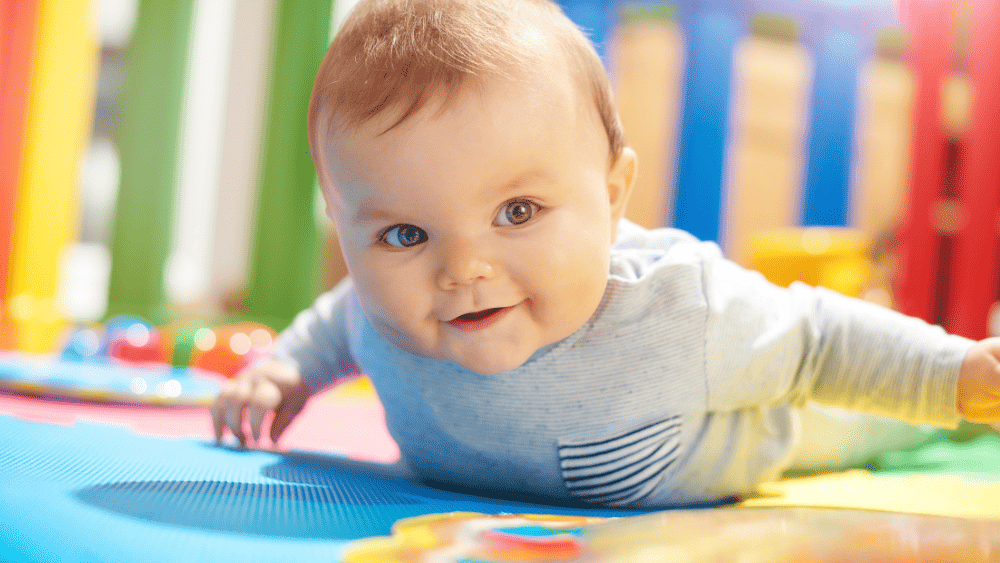
Toddler aged 1-2 years
Toddlers should be physically active for at least 180 minutes (3 hours) spread throughout the day, including playing outdoors. Try light activities such as standing up, moving around, rolling and playing. More energetic activities include skipping, hopping, running and jumping. Toddlers will love to be active play can include using a climbing frame, riding a bike, playing in water, chasing games and ball games, is the best way for this age group to get moving.
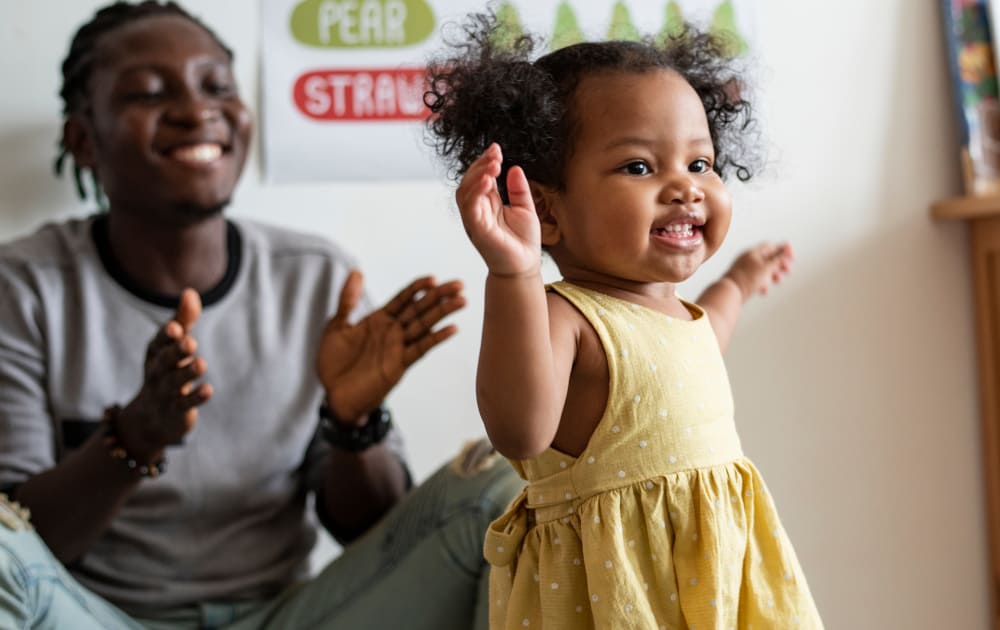
Pre-schooler aged 3 -4 years
Pre-schoolers should spend at least 180 minutes (3 hours) a day doing a variety of physical activities spread throughout the day, including active and outdoor play. Including at least 60 minutes of moderate-to-vigorous intensity physical activity.
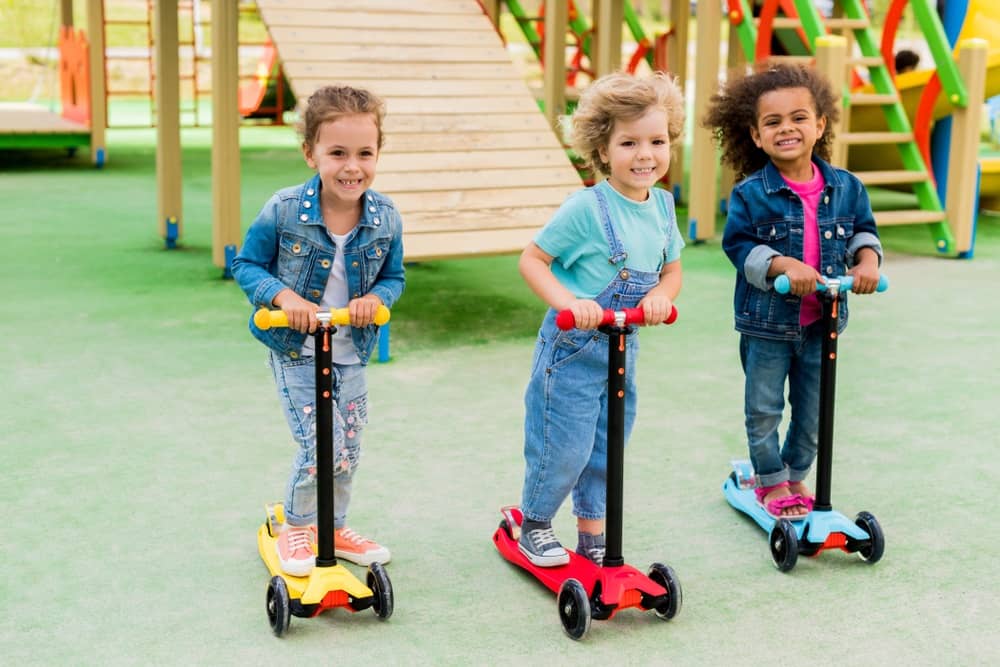
You can find more information on the physical activity guidelines for children under 5 years from the Chief Medical Officer here! (opens in new tab)
Disabled Children and Disabled Young People
The UK Chief Medical Officers have published the first ever guidelines on physical activity for disabled children and disabled young people (opens in new tab)(aged 2 to 17 years). The guidelines say that disabled children and disabled young people should be getting 20 minutes of exercise a day and doing strength and balance activities three times a week.
The evidence found physical activity can be equally beneficial for disabled children and disabled young people, tackling misinformation about the risk. Specific benefits that disabled children and disabled young people can gain from physical activity include improved confidence and concentration, stronger muscles and improved motor strength.
A new infographic accompanies the updated guidance. You can find a full overview of the new guidelines by completing our online training Keeping Active in the Early Years.

You can find more information on the physical activity guidelines for disabled children and disabled young children from the Chief Medical Officer here! (opens in new tab)
What does the EYFS say?
“By creating games and providing opportunities for play both indoors and outdoors, adults can support children to develop their core strength, stability, balance, spatial awareness, co-ordination and agility. Gross motor skills provide the foundation for developing healthy bodies and social and emotional well-being. Fine motor control and precision helps with hand-eye co-ordination, which is later linked to early literacy. Repeated and varied opportunities to explore and play with small world activities, puzzles, arts and crafts and the practice of using small tools, with feedback and support from adults, allow children to develop proficiency, control and confidence.”
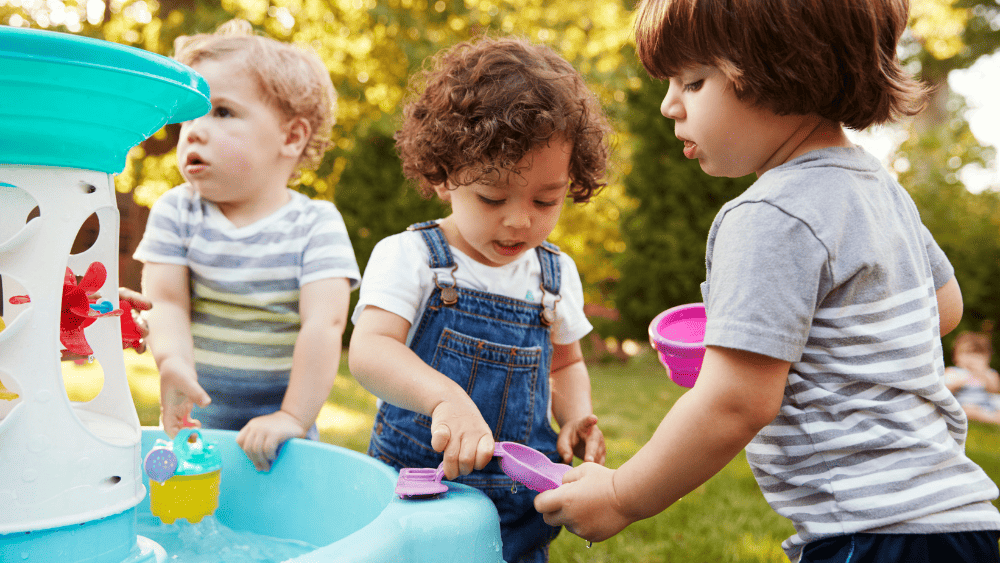
Plan activities to include a mixture of adult-led and child-initiated activity. As children grow older, and as their development allows, it is expected that the balance will gradually shift towards more activities led by adults, to help children prepare for more formal learning, ready for Year 1.
Are there any recommendations for sedentary time?
Sedentary behaviours occur whilst sitting or lying down and typically require very low energy expenditure.
It’s important to minimise the amount of time children are sedentary for extended periods (except time spent sleeping).
Children are likely to be sedentary when they are in a buggy or travelling in a car or bus, and in leisure time, which include screen-time.
Children in the UK now are less physically fit than past generations, this has implications for their future health.
A 2012 study reported that only 9% of boys and 10% of girls aged 2- 4 years are achieving their physical activity recommendations in England.
On average children in the UK spend 24 hours a week in front of a TV/Computer. Just switching the TV/Video/Computer off encourages children to be more active.

Encouraging activity in your early years setting
Plan activities across the week and link them to the Early Years Foundation Stage Framework for Physical Development, Understanding the World, Communication and Language and Personal, Social and Emotional Development.
It is also important for staff to role model as children learn by watching what you do. Show children you enjoy and value activity by taking part yourself.
Praise and encourage children when they are taking part in an activity – particularly if they are learning a new skill and be positive with your feedback. If they enjoy the experience they’ll keep taking part!
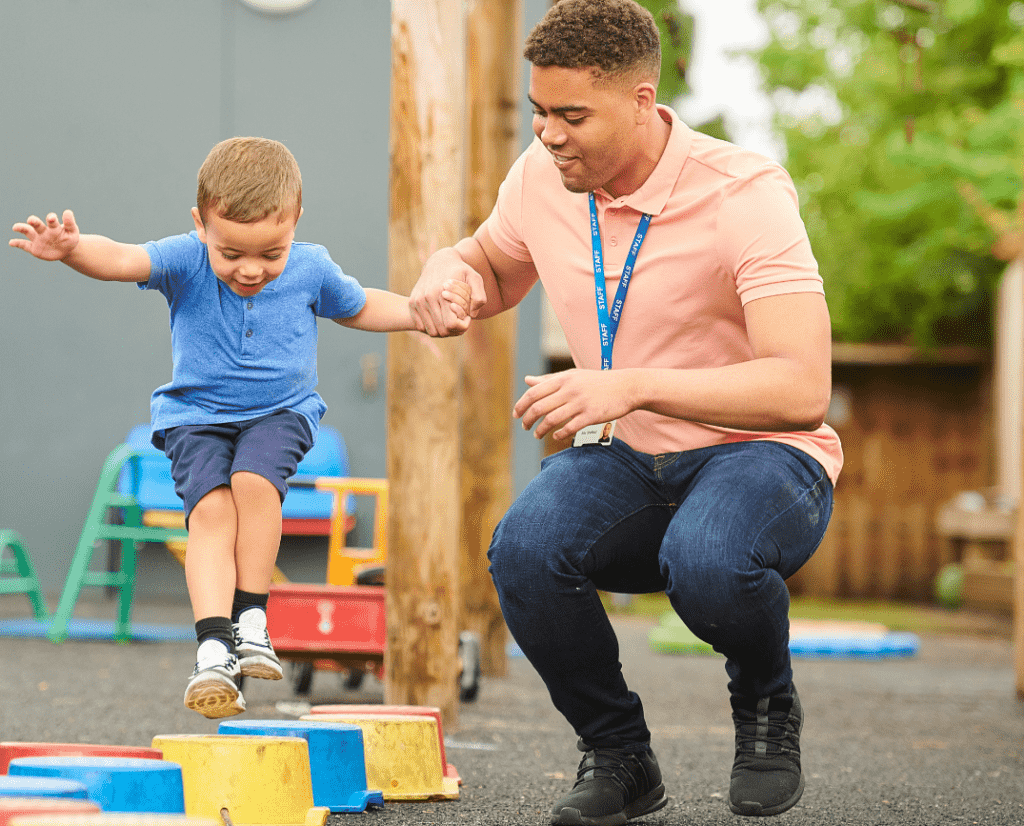
Types of activities in your early years setting
Lots of different activities can count, anything where they are moving counts.
- In the garden/ outdoor space or in the park by doing some gardening together or collecting objects
- Set up games that involve chasing or include an obstacle course or play ball or play hide and seek
- Energetic play, e.g. climbing frame or riding a bike
- Walking or skipping to a park or to and from nursery/childminders
- Story books and rhyme time where practitioners model the actions for children to copy, give verbal instructions or use pose cards and props for visual clues
- Dress up and play acting
- Older children can help with tasks such as putting toys away or helping to set-up and clear away at mealtimes
- Organise a sport day- you can invite parents to part of the day and get staff involved too!
- Make the most of your local parks and share areas of interest with families.
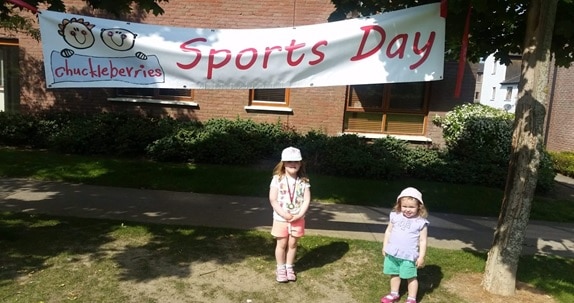
- Explore the Better Health Healthier Families website (opens in new tab) which has lots of ideas for indoor and outdoor activities to do at your setting and also share with families to ensure they continue to be active at home and as a family
- Provide families with information on local activities as this may help to increase the chances of the family accessing them i.e. information on leisure centres or children’s centres
- Ask children what activities they enjoy. Encourage them to follow their interests, and make activity fun.Activity has an number of benefits which are highlighted in a Public Health England infographic (opens in new tab). It is important to encourage children to be physical active as well as supporting them to have fun, regardless of their level of ability. Looking for more information and ideas to get children active? Book our online Keeping Active in the Early Years training (opens in new tab).
- You can find out more in the ‘Starting The Daily Mile in your Early Years Setting’
- By signing up today you’ll be part of our pilot group and have the opportunity to shape the development of The Daily Mile for early years settings across the UK. Sign up here today (opens in new tab).
- If you would like any additional information you can contact the team (opens in new tab).Consider signing up to The Daily Mile (opens in new tab). The Daily Mile is a simple initiative – children can run, jog or toddle at their own pace for 15 minutes, 3-5 times a week. It can take place outdoors and any route can be used, around your setting’s outdoor space, a local park or other safe space for children to move. You can also encourage families to take part at home too!
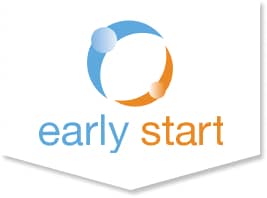
Very interesting data around the children and how active they are. In my nursery we provide a good balance of activities for the children through out the day. this varies from free play through indoor and outdoor spaces, music and movement, visits to the library and more.